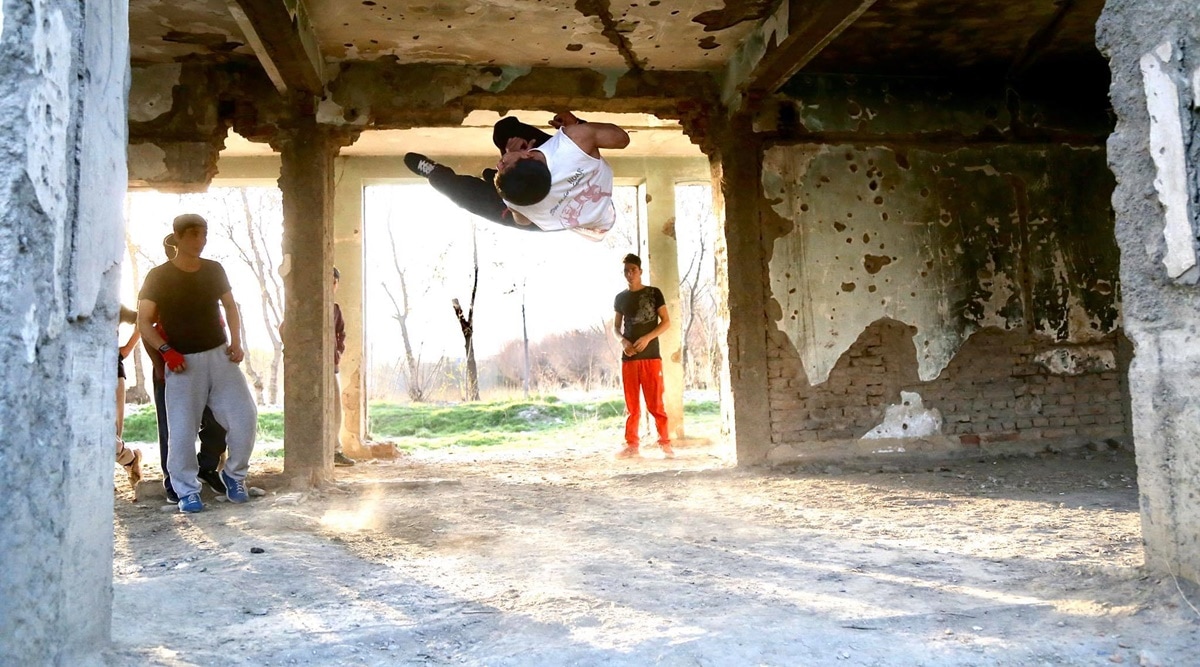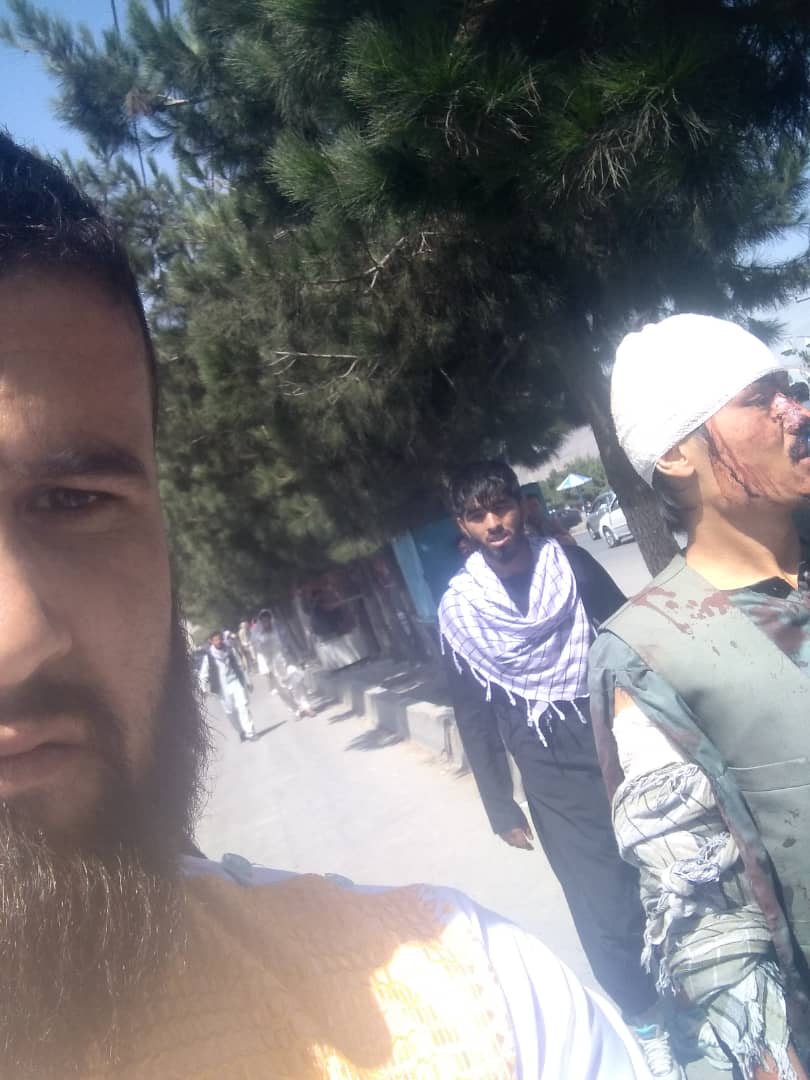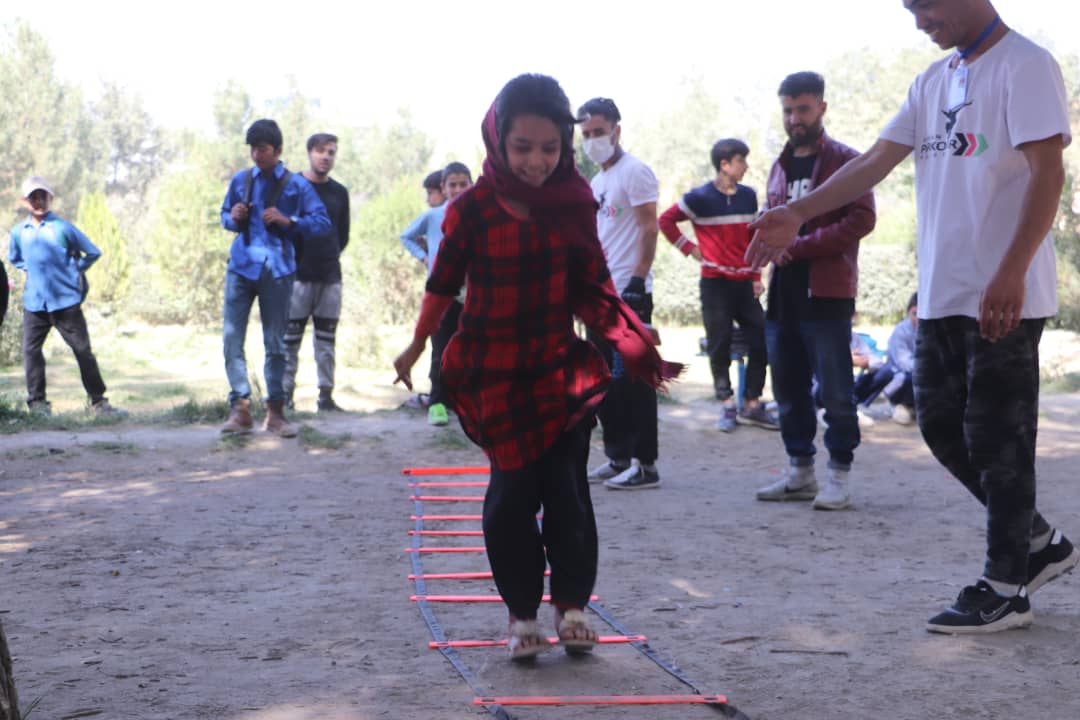Parkour, an outlet for Afghan youth from the country’s war-ravaged past, suffers a hammer blow with Taliban’s return to power.
Holed up in a dormitory in Kabul, Qudrat Frotan breaks down remembering the last time he stepped outside. The 23-year-old was among the desperate Afghans who swarmed the international airport on Monday to escape the country after the Taliban captured the capital. An explosion, the resulting stampede and injuries to his roommate made Frotan retreat.
“My friend has 16 stitches on his head. His right arm is broken. I saw two girls lying on the ground but no one dared to pick them up and take them to the hospital,” Frotan tells The Indian Express. “I rushed back to the dormitory and haven’t left. I am like a prisoner. All I’m hearing is that the Taliban are inspecting houses and people on their list are being taken away.”
Frotan has reason to be worried.
“We worked for peace and equality among the boys and girls of Afghanistan through parkour. That is against the will of the Taliban, and anything against their will is punished.”
Frotan, one of the architects of Afghanistan’s vibrant parkour scene, taught young acrobats to jump, roll, vault over and under the obstacles in the urbanscape. In 2018, he founded the Afghan Parkour Society which organised workshops and shows in 18 provinces. Last year, he was adjudged ‘Peace Ambassador’ by the International Parkour Federation.
“I don’t think we will be able to work with Afghan youth anymore,” Frotan says. “Most of our active members have gone to Iran, Pakistan… I am scared and waiting for help. If nothing happens, I will have to go to Iran illegally.”
From its roots in military training in pre-World War I France, parkour, or free-running, evolved into an underground extreme sport, then a metaphysical martial art, before becoming the latest fitness craze among gym rats. Its exponents are part of Madonna’s dance troupe and James Bond’s rogues’ gallery. They are subjects of documentaries and YouTube videos of daredevilry and one-upmanship.
In Afghanistan, however, parkour meant freedom. The practitioners, currently running away and laying low, have spent their lives running through obstacles and never staying still. The streets patrolled by gunmen now were a playground and canvas rolled into one. Wide-eyed pedestrians and motorists stopped to watch as the groups scaled drainage pipes and backflipped off walls. Kabul was the friendly neighbourhood and the pioneers of parkour its Spider-Men.
“The kids really admired us. They would tell us, ‘You are jumping, flying like Spider-Man’,” Jamil Shirzad affords a weak laugh. “They saw the cartoons and films and witnessed the stunts in real life. That inspired them.”
Shirzad, 28, founded the Kabul Boys Parkour close to a decade ago. What began as a three-man operation grew to include 60 members. The group’s progress has been catalogued by several documentaries.
“We made motivational videos for those who are really hopeless in Afghanistan. We performed for kids in orphanages and on live television. There were competitive events as well,” says Shirzad. “The talent in Afghanistan attracted foreign journalists, parkour athletes to come here and make documentaries. We filmed with BBC, Voice of America, Discovery. Journalists and parkour enthusiasts from Czech Republic, Germany, China, Japan, Pakistan and Iran came to visit us.”
With great power, came great responsibility.
“Parkour was about introducing a new sport to the youth and also to show the positive side of Afghanistan to the world,” Shirzad says.
With a lack of gym and training facilities, Afghan parkour took to the war ruins on the edge of Kabul. Scaling and leaping from one point to another in the dilapidated buildings served two purposes: tougher ‘obstacle courses’ and reminders of the nation’s strife-filled history.
“The youth of Afghanistan didn’t want to go back to the bitter history. These wars in Afghanistan had left everyone traumatised. They were all looking for peace and freedom, which they found in parkour,” says Frotan. “Young people were very frustrated and there was no trust among them. Everyone was facing psychological challenges. By doing parkour, they learned how to get over the mental blocks as well as the problems in their lives. Thinking is the solution, not violence.”
The parkour collective was also a fight for gender equality; the groups believe that the act of teaching women has made them targets.
“We fought for gender rights, to train girls to be active, to train girls in self-defence. They would perform on the streets,” says Shirzad. “It was about going towards a better future and a better life but that dream has been shattered. We are living in a nightmare now.”
As of Friday evening, Shirzad hasn’t slept in 60 hours. Like the rest of his Kabul Boys Parkour colleagues, he too is in hiding. The days are spent awaiting calls from his mother and siblings and directing his teammates to different, safer locations.
https://www.instagram.com/p/CSy3YTEDIAr/
A post shared by KabulBoysParkour (@kabul_boys_parkour_01)
“In Taliban’s minds, we were breakdancing, free-running with foreigners and journalists. We were introducing the culture to them, which is out of Islam. That we were informing them,” he says. “They are with their cars everywhere, carrying guns. It is a very scary situation for us and our only dream is survival right now.”
Survival, even day-to-day, is challenging.
“There’s no market for the vendors. There’s no food on the table of poor people. The banks are closed, ATMs are closed. Everything’s frozen. Nobody has any cash. To even get some food is becoming difficult. We have four hours of electricity and the internet is very expensive. There’s no way of staying connected with each other.”
Shirzad says he is taking a risk every time he posts on Instagram, asking for helping hands and safe passage. The parkour fraternity has been supportive but the group requires tangible assistance.
“I will be a loser leader if I leave Afghanistan before my members. The embassies are only evacuating those who work with them. We were activists for sports, we were activists for gender rights, we were activists for motivating the youth, performing and teaching free of cost. But we will not be considered.”
Shirzad spent years teaching a mantra to the Afghan youth: “you can jump over any obstacle.” He admits the current challenge though seems insurmountable.
“As a leader, I cannot accept failure. But the reality is that this isn’t just the end of parkour in Afghanistan. It feels like the end of all life.”
Source: Read Full Article




